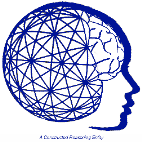Artificial intelligence
Artificial intelligence (AI) is the science and engineering of constructing "intelligent" machines. However, there is not a commonly accepted definition of what it would mean for a machine to be truly "intelligent." More broadly, AI is a field of science and engineering involved with the study, design and manufacture of systems that exhibit behavior that is reactive to conditions within the surrounding environment, adaptive toward the accomplishment of system goals, autonomous to varying degrees, and complex in breadth or scope. As the field progresses the context and expectations for the extent of reactiveness, adaptiveness, autonomousness and complexity of the systems has grown.
Artificial Intelligence has been described as a "broad sub-field within computer science" by many authors. Certainly, AI has it's strongest roots within computer science, but it also has an interdisciplinary character that both draws from and feeds back to the fields of mathematics, philosophy, language, robotics, and possibly others. More recently, an interdisciplinary approach to cognition and intelligence has developed known as cognitive science. Though many of the methods are similar, cognitive science shifts the focus, by looking at the methods of artificial intelligence as a means to gaining greater insight into the basic mechanisms of perception, memory and thought.
While earlier systems (circa 1970s and 1980s) were well-described as narrow, brittle, and highly engineered, often relying on expert systems or knowledge bases, progress is being made in many areas.
It is generally recognized that much of human behavior is reactive, adaptive, automonous and complex as used in this definition and constitutes an instance of a "natural intelligence." Whether an AI system could rival the general cognitive capacity of humans is a matter of some debate that mostly centers on "free will", "self directed goals", "self awareness" and similar highly complex human behaviors.
AI has spawned many great successes such as advances in problem solving algorithms, search algorithms, knowledge representation, machine learning, object oriented programming, natural language understanding, and expert systems. However if you ask many experts in these areas, you frequently are told "this area is not AI."
Timeline of events in the field of AI
(list to be inserted)
Sub-fields
- Semantic networks
- Rule based inference systems
- Artificial neural networks and connectionism
- Genetic algorithms
- Fuzzy logic
- Constraint based programming
- Natural language processing
- Knowledge representation
- Bayesian methods
- Ontologies
Founding parents
(Ordered by alpha)(These should link to articles on the individuals.)
Notes
- ↑ McCarthy coined the term "artificial intelligence"
